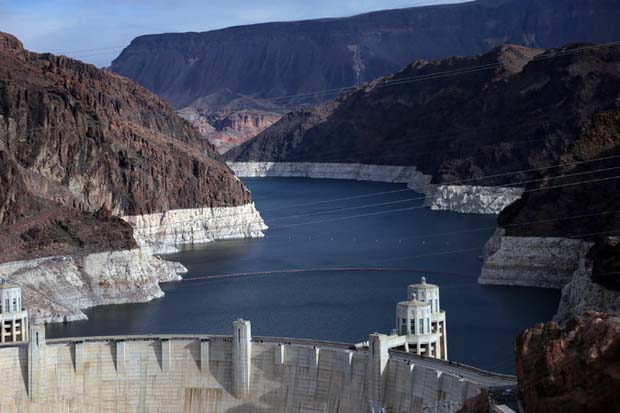Colorado River Drought Forces a Painful Reckoning for States
By MICHAEL WINES / JAN. 5, 2014
Lake Mead, Nevada
[dropcap]T[/dropcap]he sinuous Colorado River and its slew of man-made reservoirs from the Rockies to southern Arizona are being sapped by 14 years of drought nearly unrivaled in 1,250 years.
To help the Colorado, federal authorities this year will for the first time reduce the water flow into Lake Mead, the nation’s largest reservoir, created by Hoover Dam. Jim Wilson/The New York Times
The once broad and blue river has in many places dwindled to a murky brown trickle. Reservoirs have shrunk to less than half their capacities, the canyon walls around them ringed with white mineral deposits where water once lapped. Seeking to stretch their allotments of the river, regional water agencies are recycling sewage effluent, offering rebates to tear up grass lawns and subsidizing less thirsty appliances from dishwashers to shower heads.
But many experts believe the current drought is only the harbinger of a new, drier era in which the Colorado’s flow will be substantially and permanently diminished.
Faced with the shortage, federal authorities this year will for the first time decrease the amount of water that flows into Lake Mead, the nation’s largest reservoir, from Lake Powell 180 miles upstream. That will reduce even more the level of Lake Mead, a crucial source of water for cities from Las Vegas to Los Angeles and for millions of acres of farmland.
Reclamation officials say there is a 50-50 chance that by 2015, Lake Mead’s water will be rationed to states downstream. That, too, has never happened before.
To read complete story – click here […]

